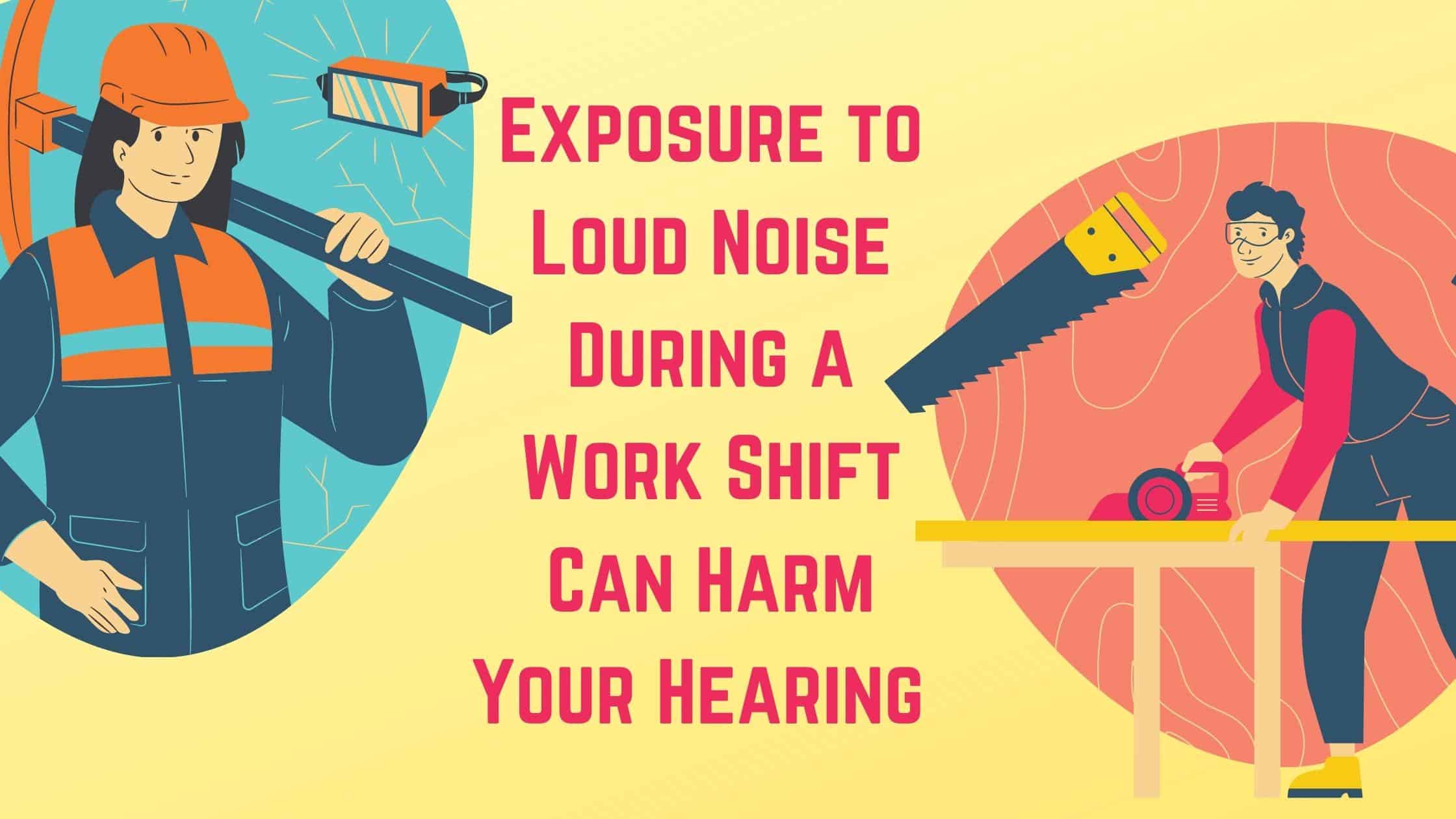
Do you work on a noisy jobsite every day? Millions of Americans work in noisy environments that could be harming their hearing. And if your work week includes shift work, you could have an even higher risk of hearing loss.
Occupational Hearing Hazards
According to the CDC, hearing loss is the third most common chronic physical condition in American adults. This may be due to the high rates of occupational hearing hazards on job sites across the country. In fact, the CDC reports that roughly 22 million American workers are working in hazardously noisy conditions every year.
The main cause of occupational hearing hazards is very loud noise. Ototoxic chemicals, or chemicals that can damage hearing, can also be present in some workplaces.
Shift Work and Hearing Loss
The hours you work can also affect your hearing. A 2019 study looked at how shift work and hearing loss are connected. The study included over 11,000 participants who worked in shifts.
Not surprisingly, people who worked the most number of hours per shift, and had the most exposure to noise, had the highest risk of hearing loss. This study shows that shift work, combined with exposure to occupational noise, can increase your risk of hearing loss.
Noise Induced Hearing Loss at Work
Excessively loud noise is a part of countless workplaces, especially jobs that include shift work. Things like heavy machinery, power tools, emergency sirens, or loud music can cause dangerous sound levels in your workplace. Jobs that often are extremely noisy include:
- Construction
- Manufacturing
- Mining
- Farming
- Landscaping
- Law enforcement
Loud noise can put your hearing health at risk. Occupational noise is even more dangerous, because you’re in these loud environments for at least 8 hours a day, 5 days a week. Common sources of workplace noise are:
- Heavy machinery
- Motors and generators
- Ventilation equipment
- Power tools such as jackhammers, saws, and drills
- Workplace transport
- Loud music
Noise induced hearing loss is permanent. These loud sounds can harm the cells in the inner ear, and once these cells are damaged, they can never be restored. That’s why it’s important to learn the risks of noise exposure and protect your ears when you’re exposed to dangerously loud sounds at work.
How Loud is Dangerously Loud?
If you work in a noisy profession, it’s hard to know how loud is too loud. If you’re wondering if your workplace is too loud, there’s a good chance it is. These are a few signs your workplace is dangerously loud:
- You have to shout to talk to a nearby coworker for at least part of the day.
- Noise feels aggravating or even painful.
- You experience a ringing in your ears when you leave work.
- You experience temporary hearing loss or feel like sounds are muffled when you get off work for the day.
- You’ve started noticing the signs of hearing loss.
OSHA Regulations
No one should be exposed to loud noise during a work shift. The Occupational Safety and Health Administration provides clear regulations for managing workplace noise. If sound levels are higher than 85 decibels for most of the day, your workplace has occupational hearing hazards, and your employer must take precautions.
This could include investing in quieter equipment, building barriers between staff and the source of noise, or scheduling shifts to minimize noise exposure. Of course, many jobs will always include hazardous noise levels. OSHA requires your employer to provide appropriate hearing protection.
But at the end of the day, it’s your hearing that’s on the line. Make sure you’re aware of loud noise at your workplace so that you always wear proper hearing protection.
Protect Your Hearing with PPE
Noise-induced hearing loss is preventable! By consistently wearing the right hearing protection you can minimize your risk of noise induced hearing loss. Whenever you’re at work or doing loud recreational activities, pop in a pair of earplugs. For extremely loud environments, make sure you have well-fitting earmuffs that will give you even more hearing protection.
Is it Time to Treat Your Hearing Loss?
Are you exposed to loud noise during work shifts? We recommend getting regular hearing tests to monitor your hearing health. This will give you up-to-date information about your hearing abilities. You’ll find out right away if you have hearing loss, and you can start exploring your treatment options.
